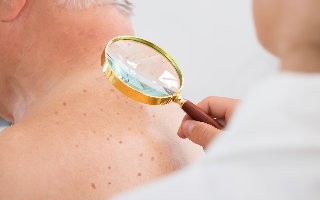
- No win. No fee.
- No hidden costs
- 100% risk-free, only pay if you win
- Home >
- Insights >
- Misdiagnosis Claims >
- How can I claim for a cancer misdiagnosis?
Receiving a cancer diagnosis is something that nobody wants to experience. It often marks the beginning of a challenging, stressful journey for the affected person and their loved ones, as they come to terms with this news and how it will change their lives, both in the immediate and long-term future.
Of course, the earlier cancer is spotted, the better – it improves the odds of a shorter treatment, and that the patient will recover with a good prognosis.
But if cancer is misdiagnosed, or there was an unreasonable delay in achieving diagnosis, it can make an already traumatic time for the patient and their family even more harrowing, knowing that something could have been done sooner to improve their chances.
If you or someone you are close to you finds themselves in this unfortunate position, below we will explain what you need to know to make a cancer misdiagnosis claim, to secure the answers and the compensation that you deserve.
Making a claim for a cancer misdiagnosis
- The foundations of a cancer misdiagnosis claim
- How types of cancer can be misdiagnosed
- What percentage of cancer patients are misdiagnosed?
- How can a cancer misdiagnosis or delayed diagnosis affect your life?
- How can compensation help following a cancer misdiagnosis?
- Talk to true specialists in medical negligence
The foundations of a cancer misdiagnosis claim
When we refer to cancer misdiagnosis, we are generally looking at one of three situations:
- A patient’s cancer is mistaken for another illness or condition by their GP, consultant or another healthcare professional, leading to a delayed diagnosis
- A patient’s cancer is overlooked entirely by a healthcare professional, again resulting in a delayed diagnosis
- A patient is wrongly diagnosed with cancer, when instead they are suffering with another condition or there is a different explanation for their symptoms
In the first two situations, as misdiagnosis claim solicitors we will look to establish how the claimant’s cancer progressed as a result of this delay. That is:
- What further pain, suffering, loss or damage has the patient endured as a result of delaying misdiagnosis and treatment?
- How have the patient’s treatment options changed due to the delay? For example, has a tumour that could have been removed with surgery several months ago progressed to a stage where the patient now requires chemotherapy as well?
- How has the patient’s prognosis changed due to the delay? For instance, has the patient gone from a 100% chance of survival at 5 years to an 80% chance of survival?
While different types of cancer progress at different rates, as a general rule of thumb, we say that there should be at least 6 months between when the medical misdiagnosis occurred and when the cancer is diagnosed for there to have been a significant delay.
We will work with an impartial oncologist to identify the current stage and grade of a claimant’s cancer, and what it is likely to have been at the time the misdiagnosis occurred. This helps us understand what the treatment options and prognosis of the claimant would have been if the cancer was diagnosed at this time, and how this has now changed.
If the delay has definitively changed a patient’s treatment options or prognosis, there is the basis for a cancer misdiagnosis claim. If there is no change to either, there is probably no claim.
In cases of a wrongful cancer misdiagnosis, there are two key factors that will establish whether a patient has a valid misdiagnosis claim:
- Whether they received any treatment for their supposed cancer, such as chemotherapy, radiotherapy or surgery, and the consequences of this treatment
- How has the real illness or condition the patient was suffering from progressed during the period of delay?
These factors will determine whether there is a cancer misdiagnosis claim, and influence the value of the compensation settlement.
How types of cancer can be misdiagnosed
There are numerous instances where a cancer misdiagnosis can occur:
- A GP, doctor or another healthcare professional may fail to recognise potential signs of cancer, or does not take symptoms as seriously as they should
- A GP fails to arrange appropriate diagnostic tests or refer the patient to a specialist
- A biopsy or similar diagnostic test is not reported accurately
- Signs of cancer are missed or mistaken on a patient’s scans
- The stage or type of cancer is misdiagnosed, leading to ineffective treatment
- There is an unreasonable delay in contacting the patient to follow up on their results
For further clarity, below we have outlined common types of cancer, and how these may be misdiagnosed by a healthcare professional.
Breast cancer
If a patient goes to their GP worried about a lump in their breast, the GP may incorrectly reassure them that the lump is benign when it is actually cancerous. Symptoms could also be confused as signs of breast inflammation or fibrocystic breast disease.
Scans may also deliver incorrect or inconclusive results. One of our past clients, Miss K, underwent a mammogram and ultrasound scan due to a pea-sized lump under her left nipple, and was reassured that her symptoms were not sinister. No biopsy was carried out.
18 months later she was referred to a different hospital, where a biopsy revealed she had a Grade 2 invasive ductal carcinoma, which unfortunately was now terminal. We successfully argued that a biopsy should have been performed at the same time as the mammogram and ultrasound scan. If it had been, Miss K would have had a 92% chance of survival at 15 years.
Skin cancer
A malignant melanoma may be misdiagnosed as a harmless freckle or mole by a GP. This is not necessarily problematic on its own – it is unreasonable to expect a GP to refer a patient for every mole and freckle they are presented with.
However, in these instances it is often valuable for GPs to provide a “safety net”, reminding the patient to keep an eye on how the mole or freckle progresses, and come back if they’re still worried. If a healthcare professional simply provides reassurance there is nothing wrong without this safety net, they could be found liable for cancer misdiagnosis.
Bowel cancer
If someone goes to their GP with stomach pains or rectal bleeding, it is possible that the GP will diagnose this as haemorrhoids or an anal fissure, as they share similar symptoms.
This was the case for Miss M, who attended her GP and A&E multiple times with these and further symptoms. After eventually receiving an MRI of her back and a biopsy, it was revealed she was suffering from bowel cancer, and she passed away 2 years after diagnosis, leaving two children.
Had the hospital investigated Miss M’s symptoms by an MRI or CT at any one of a number of earlier points in time when they should have done, surgery would have been possible, and it would have prolonged her life by up to a further 5 years.
Lung cancer
Someone with early-stage lung cancer may go to their GP or another healthcare professional with a persistent cough. This may be diagnosed as one of many potential conditions, especially if the patient is known to suffer from asthma or another breathing problem.
Again, it is important for the healthcare professional to instruct the patient to keep an eye on the cough and return if their condition worsens or does not resolve.
What percentage of cancer patients are misdiagnosed?
In our years of experience handling misdiagnosis claims, cancer misdiagnosis is not an uncommon phenomenon. Online it is not hard to find headlines that suggest up to two-thirds of all cancers are initially misdiagnosed.
In 2019, Cancer Research UK calculated that approximately 115,000 cancer patients are diagnosed too late to give them the best chance of survival.
However, we feel it is important to take a critical look at these statistics. In some instances, the patient will not have seen a doctor or GP until their cancer has progressed significantly. In other circumstances, the delay in diagnosis will have only been a couple of weeks, making it unlikely that their treatment options or prognosis have significantly changed.
Furthermore, a delay in cancer diagnosis is not always unreasonable. If there are multiple potential causes for a patient’s symptoms, a healthcare professional will determine a range of differential diagnoses. Each diagnosis would then be tested based on the immediate threat posed to the patient.
How can a cancer misdiagnosis or delayed diagnosis affect your life?
Being told you have cancer is devastating news on its own. When it is compounded by the knowledge that it was initially misdiagnosed and should have been treated sooner, it can have a significant emotional impact on the patient and their loved ones.
The delay in diagnosis may result in the need for more intensive, long-term treatments. This can mean having to take more time off work, they cannot participate in their favourite hobbies, and that they are less able to care for and play with their children. The effect on their lifestyle can be seismic.
The same applies to a change in prognosis. Handing a client their prognosis report following a cancer misdiagnosis is a necessary but often difficult process for us. It can be a stark reminder to the client of where their life is now going compared to where it should have gone.
For both claimants and loved ones, coming to terms with a cancer misdiagnosis and the ramifications of that misdiagnosis is understandably challenging. We work to help our clients through this difficult time, keeping them on course to secure the compensation they deserve.
We discuss this in greater detail in our article on the emotional impact of a cancer misdiagnosis.
How can compensation help following a cancer misdiagnosis?
The compensation awarded following a successful cancer misdiagnosis claim can support the claimant and their loved ones in adjusting to their new circumstances. As well as damages for any pain, suffering or loss of amenities endured as a result of the misdiagnosis, compensation can cover:
- The cost of cancer treatments (chemotherapy, radiotherapy, surgery, etc.)
- Loss of earnings incurred while undergoing and recovering from treatment
- Any necessary equipment or aids
- Therapies or support for any psychological harm caused by the experience
- Payment for services that the claimant cannot perform themselves anymore – For example, if a patient’s lymph glands are removed as part of their treatment, they may develop lymphoedema. This may make them more susceptible to skin infections, so unable to perform tasks such as gardening
In unfortunate cases where the misdiagnosis results in the claimant’s illness being terminal, compensation may also help support their dependents when their loved one passes away. If you would like to know more about this possibility, please read our article on death by medical negligence.
Are cancer misdiagnosis claims settled faster?
Cancer misdiagnosis claims will typically not proceed any faster than any other form of medical negligence claims.
In order to establish that a claim is valid, and to ensure that you secure the best result possible, it is critical that your solicitors take the appropriate time to investigate your circumstances and receive feedback from independent medical experts.
However, working with specialist misdiagnosis claim solicitors such as Gadsby Wicks means that we will know immediately who to contact and what to investigate for your claim. This helps your claim to run smoothly from start to finish, and likely achieve a result sooner than a non-specialist solicitor could.
Talk to true specialists in medical negligence
If you or a loved one has been affected by a cancer misdiagnosis, start your journey to securing the compensation, answers and justice you deserve by visiting our “Do I have a claim?” page. Answer a few quick questions, and a member of our team will be in touch to discuss your situation further.
Disclaimer
All content contained within this article is meant for general information only – this should not be treated as a substitute for medical advice from your doctor or another healthcare provider. If you require legal advice specific to your situation, please contact our team directly.
Gadsby Wicks is not liable for any diagnosis made from the content of this article, nor does it endorse any service or external site linked to within the article.
Always consult your GP if you are concerned about your health and wellbeing, or speak to us if you require legal advice.


The emotional impact of a cancer misdiagnosis



 Back to top
Back to top
